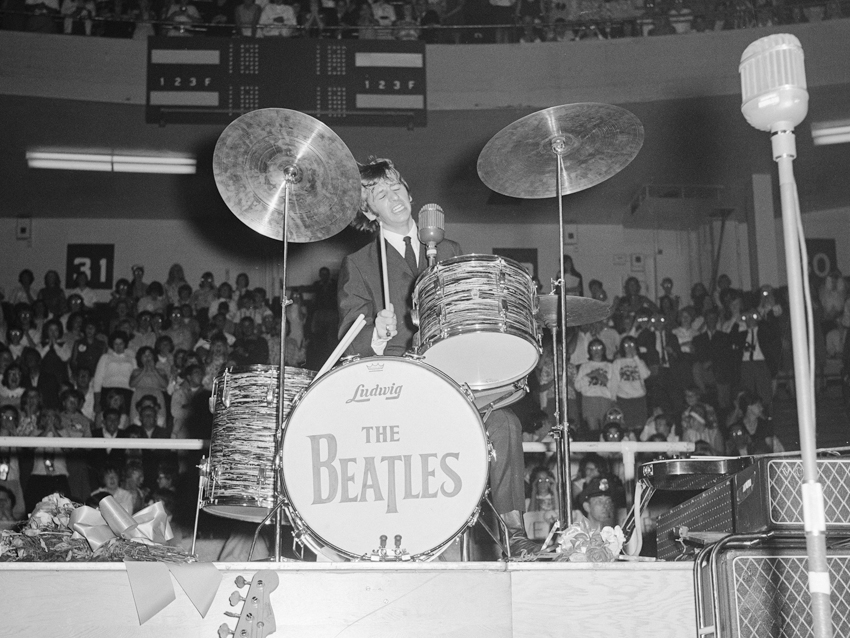
The 12 greatest singing drummers ever
It's one thing to be a good drummer. But to be a great drummer – one who keeps the beat, plays for the song, and who imbues his craft with a unique sense of personality – that's something else altogether.
Now, let's consider singers. Plenty of people can carry a tune. But how many of them can sell you a song with character and unfiltered emotion? Whether it's belting or crooning, capturing a feeling and putting it across to the listener is a mysterious talent that but a few truly possess.
All right, let’s combine the two and arrive at drummers who sing – not just ‘oohs’ and ‘ahhs,’ mind you, we’re talking lead vocals. Suddenly, all of those drummer jokes aren’t so funny anymore.
With all of this right side/left side brain stuff in mind, MusicRadar is banging a gong and letting the melismas fly as we salute the 12 greatest singing drummers ever, players who dispel the notion that you have to step up to the mic to make magic. Sitting down is perfectly fine.
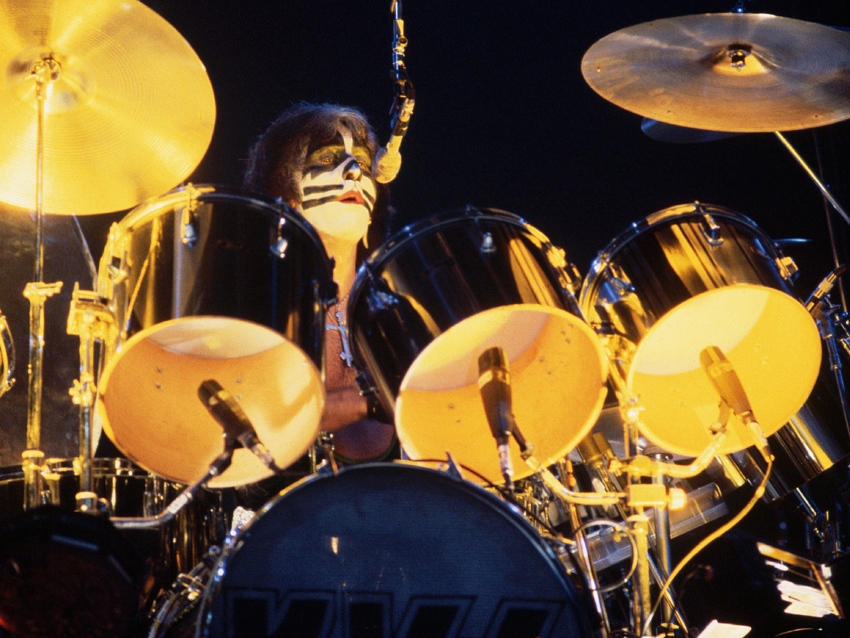
Peter Criss
Although the image of a catfaced Peter Criss commandeering his kit high atop a lighted riser (cue the lasers and flashpots) is forever burned into the memories of all those who saw KISS in their '70s glory, it was actually Criss' singing that got him in the band.
During his first meeting with Gene Simmons and Paul Stanley at an Italian nightclub in Brooklyn, Criss started doing his best Wilson Pickett. The two leaders of Kiss looked at each other and said, "That it. That's our drummer."
A trained jazz player who learned to rock by listening to Mitch Mitchell, Criss' swinging, fluid style made Kiss' hits fly. And with his flair for showmanship (at one point he played a 20-piece Pearl kit with 34 Zildjian cymbals!), he more than fit into their over-the-top aesthetic.
As a singer, Criss easily distinguished himself on Kiss staples such as Black Diamond, Hard Luck Woman, Baby Driver and Getaway. Nothing, however, could match the drummer's solo vocal turn on the Top 10 smash Beth, which Criss co-wrote with his pre-Kiss bandmate, guitarist Stan Penridge.
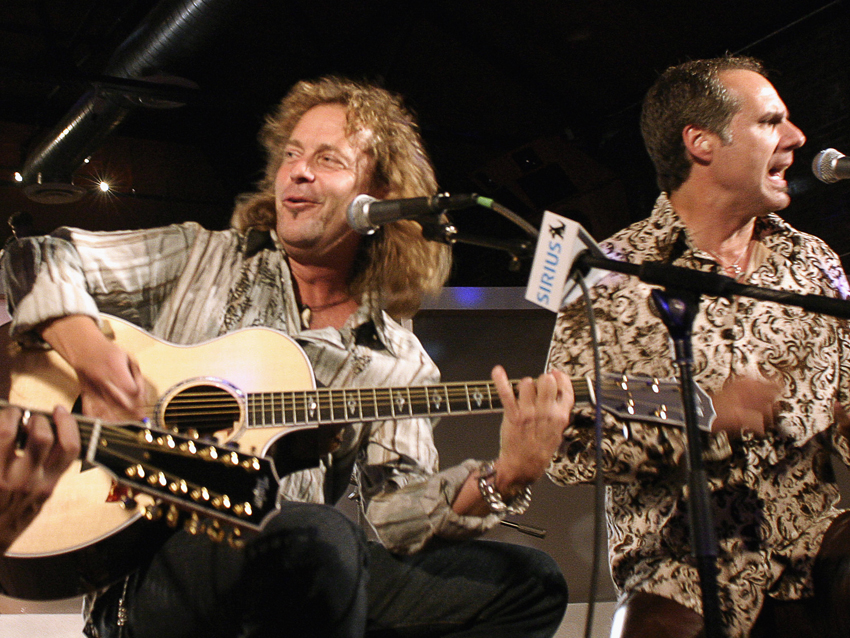
Kelly Keagy
With his drum kit turned sideways and aligned with the rest of the band, Kelly Keagy's unorthodox approach to stage presentation seemed perfectly suited for Night Ranger, an '80s hard rock outfit that featured two lead guitarists (Brad Gillis and Jeff Watson) and a singing bassist (Jack Blades).
However, Blades wasn't the only singer in Night Ranger. Keagy tackled vocals quite capably on several of the group's hits such as Sentimental Street, Sing Me Away and that favorite of Boogie Nights devotees everywhere, Sister Christian, the song that asks the eternal musical question: Just what the heck does 'motorin'' mean anyway?
Come to think of it, what's a 'Night Ranger'?
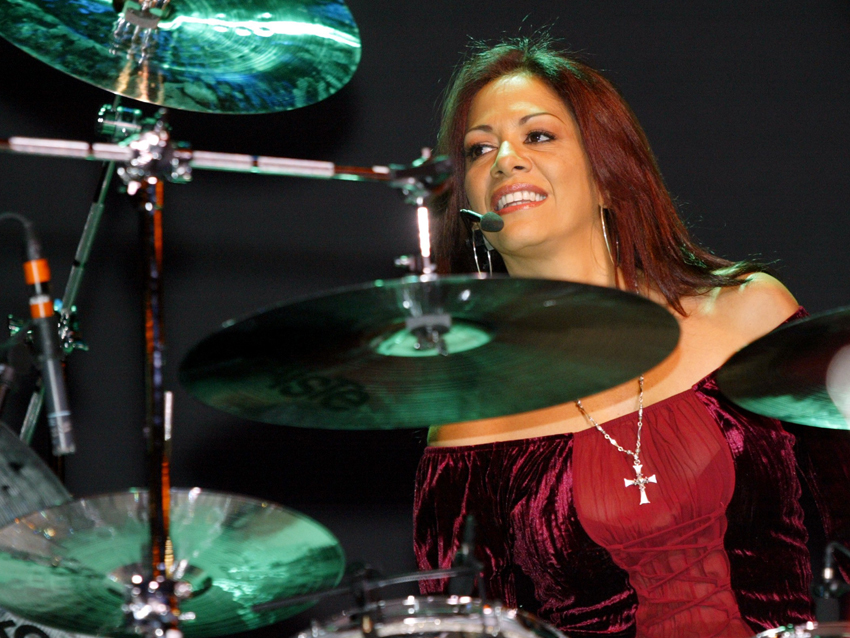
Sheila E
You might say genetics gave Sheila E a little leg up in the drumming department: her father is noted percussionist Pete Escovedo, who led the Latin big band Azteca for many years.
A working musician by the time she turned 21, having performed with George Duke, Herbie Hancock, Marvin Gaye, Lionel Richie and Diana Ross, Sheila met Prince at a concert in 1978. The Purple One took her under his wing, which led to Sheila contributing lead vocals to the song Erotic City (the B-side of Let's Go Crazy).
A year later, Sheila E was having hits of her own. The Glamorous Life (just try drumming and singing that at the same time - not easy), The Belle Of St Mark, A Love Bizarre - all big-time smashes that showed off her dreamy, satiny voice and her virtuosic ways with percussion.
Solo albums, guest appearances - Sheila's been all over the map during the past two decades. Since 2001, she's performed three stints with Ringo Starr And His All-Starr Band. Her drums of choice are DW and she uses Zildjian cymbals and hardware. With Toca, she has her own signature line of hand drums.
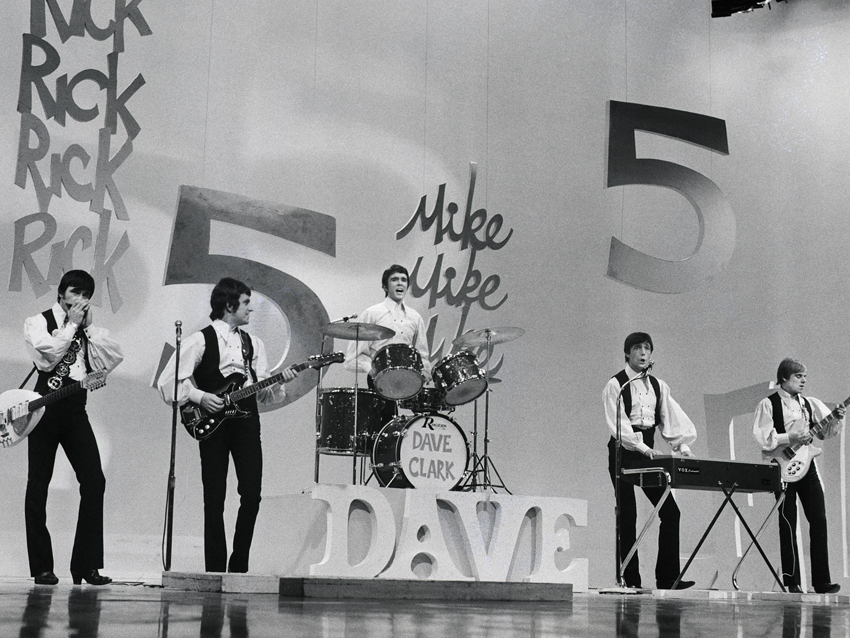
Dave Clark
We admit it: Dave Clark makes this list on technicalities. Although the brilliant keyboardist Mike Smith was the true lead singer for the band, Clark guided the ship, which also meant presenting himself as the group's star attraction.
During a two-year run starting in 1964, The Dave Clark Five road the crest of Beatlemania and racked up an impressive string of hit singles. Because of the name of the band, most radio listeners assumed that Clark was the lead vocalist.
Not that the drummer did much to discourage the idea: whether he was laying back on a ballad (Because) or giving his Rogers kit a good four-on-the-floor thumping on rockers (Glad All Over, Bits And Pieces), Clark - often positioned front and center - commanded the camera's attention, and much of the time he was caught singing.
As they say, appearances are everything.
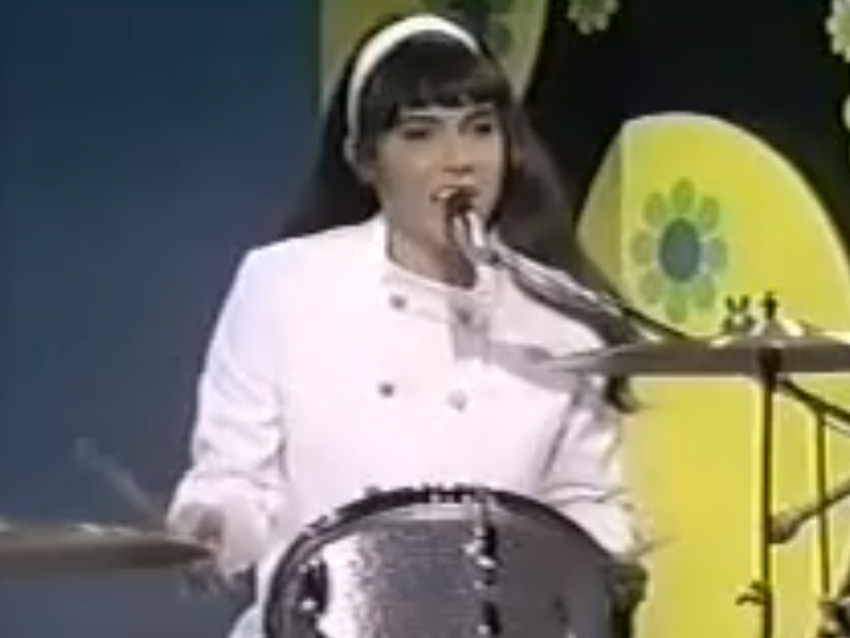
Karen Carpenter
In the case of Karen Carpenter, who with her brother, Richard, made up one of the most successful musical duos of all time, the quality of her singing is undisputed. On hit after hit after hit (Close To You, Rainy Days And Mondays, We've Only Just Begun, Superstar, For All We Know, etc.), Karen's velvety and vaguely haunting voice ruled the airwaves during the 1970s.
So it is then that we must consider her skills behind the drum kit, and the fact is, they were considerable. As a teenager, Karen was strongly influenced by Dave Brubeck Quartet drummer Joe Morello. With only a few years of experience under her belt, she taught herself the odd-time patterns of Brubeck's faves such as Take Five and It's A Raggy Waltz.
It is common knowledge that Wrecking Crew drummer Hal Blaine played on a number of recordings by the Carpenters. Even so, he was knocked out by Karen's talent with the sticks. "I always said that Karen was a good drummer," Blaine told Modern Drummer in 1983. "I knew she could play right away when she'd sit down at my drums on sessions. She played on a lot of the album cuts, and she played when they performed live, as well.
Sadly, Karen Carpenter died in 1983 at the age of 32 from a heart attack brought on by a seven-year battle with anorexia. Her music, of course, lives on.
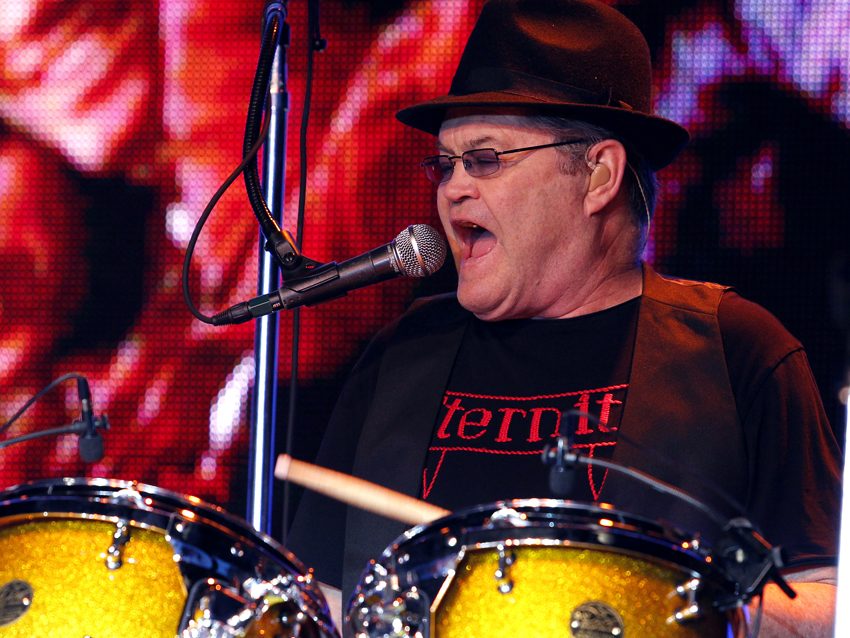
Mickey Dolenz
When Mickey Dolenz was cast along with Mike Nesmith, Peter Tork and Davey Jones to form the 1960s made-for-television band, The Monkees, he was the member with the most acting experience. He also had the least musical experience.
Regardless, producers were taken with his natural singing voice, which made songs such as Last Train To Clarksville, I'm A Believer, (I'm Not Your) Steppin' Stone and Pleasant Valley Sunday rival The Beatles' hits for chart supremacy.
At the time of his hiring, Dolenz couldn't play the drums at all. But with the help of teachers, he could fake it convincingly for the cameras. Within a year, he could play well enough for the stage and, eventually, the recording studio.
Today, Dolenz is right at home at the drums and the mic as he continues to perform with fellow Monkee mates Tork and Jones.
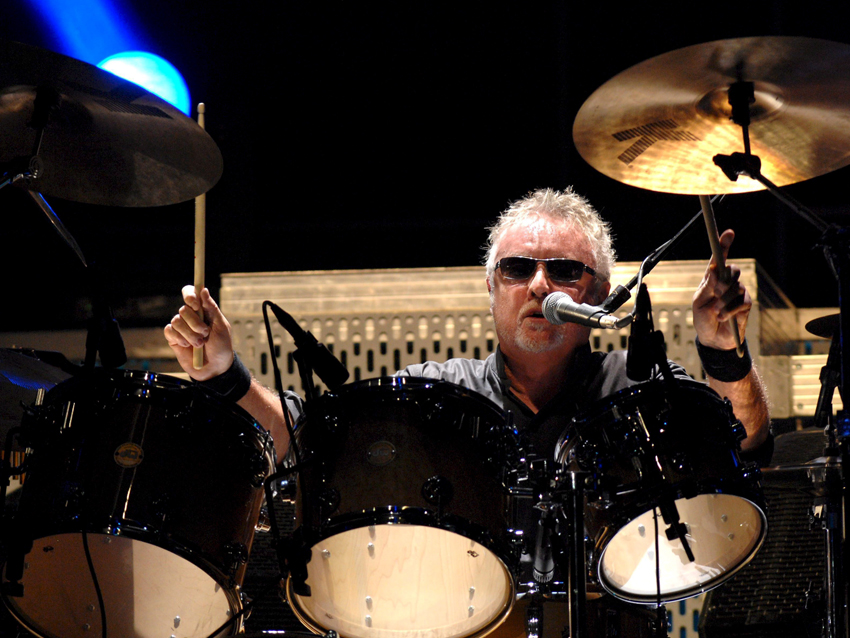
Roger Taylor
In Queen, Roger Taylor pulled off the near-impossible. Not only did the provide the kind of massive beats and thunderous fills sturdy enough to go up against Brian May's ginormous guitar sound, but he proved to be a versatile enough singer to complement the operatic, larger-than-life vocals of Freddie Mercury.
Whether swinging (Crazy Little Thing Called Love), funking out (Another One Bites The Dust) or rocking to the nth degree (take your pick), there hasn't been a drumming style or feel that Taylor hasn't been able to nail. (Until 2008, he played either Ludwig or Sleishman drums kits; now he favors DW.)
As a singer, Taylor handled harmonies and co-leads on numerous Queen gems (his falsetto screams in Bohemian Rhapsody are a particular highlight). But he grabbed center stage - or center drum stool - for solo turns on I'm In Love With My Car, Modern Times Rock 'N' Roll, Fun It, Father To Son and many others.
More than just a great drummer, and more than just a great drummer who could sing well - Roger Taylor was Queen's secret weapon.
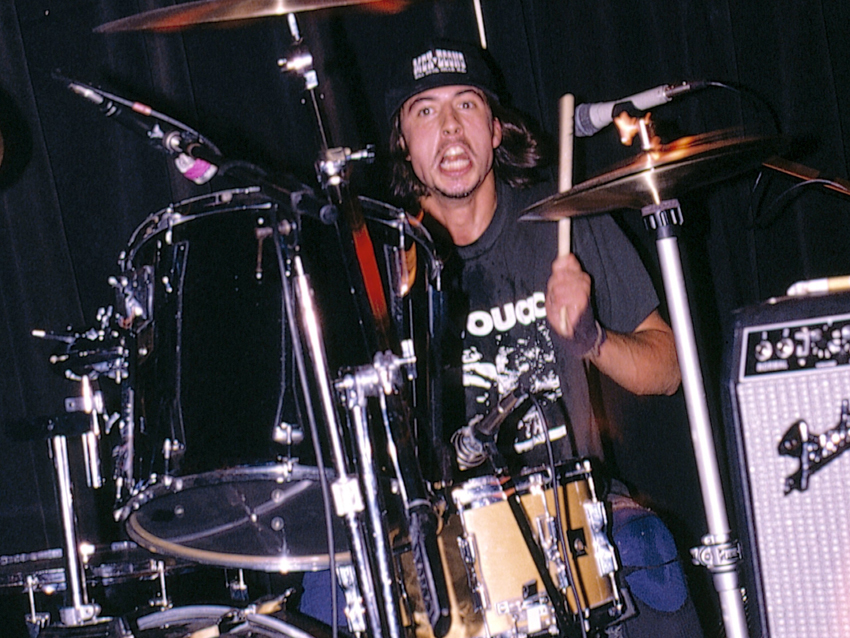
Dave Grohl
Like Dave Clark, we're probably letting Dave Grohl slide by a little here, too. For while it's true that he's more than acquitted himself as a first-class singer and guitarist in the Foo Fighters, it was as the drummer in Nirvana that we first came to know Grohl.
And what a drummer! Inspired by players that ran the gamut from John Bonham and Neil Peart to The Melvins' Dale Crover and Earl Hudson from The Bad Brains, Grohl's spirited, classic rock meets punk style powered the songs of Kurt Cobain with tectonic force.
Cobain was Nirvana's main man, but towards the end of what would be their all-too-brief career, he began to let Grohl step out more, evidenced by the wondrous cut Marigold. Grohl not only wrote the delicate ballad, he sang lead and backing vocals, along with playing drums and guitar.
Marigold would originally appear as the B-side to Nirvana's Heart-Shaped Box. Thirteen years later, Grohl would perform the song with the Foo Fighters and release it on the live album Skin And Bones.
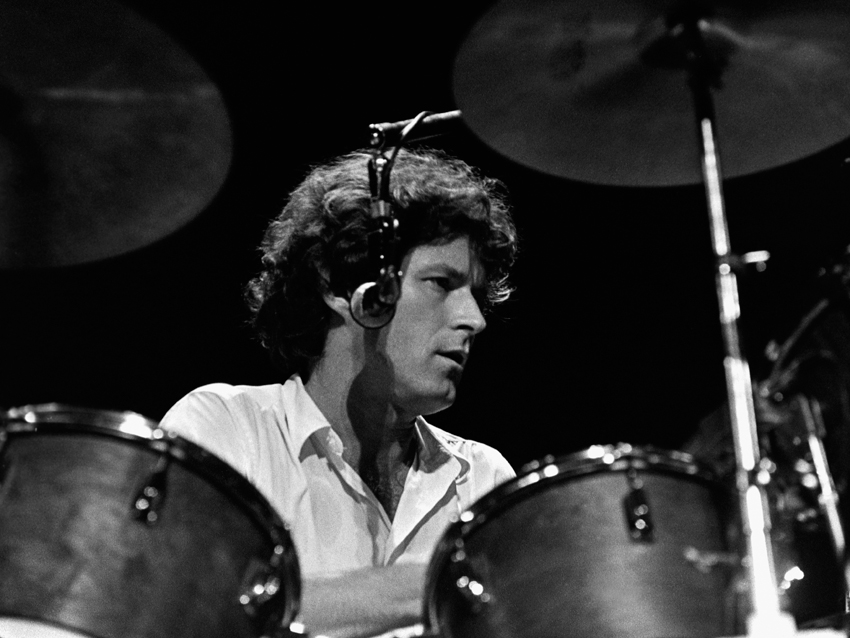
Don Henley
The look and sound of Don Henley seated behind the drums while singing timeless Eagles classics is one of those things in life that's utterly perfect - so much so that, at the start of his solo career, when he stepped to the mic with a guitar around his neck, it came as a total shock.
Now that he's an Eagle again, Henley is playing the drums - effortlessly, cleanly, with a Ringo Starr-influenced less-is-more groove - and applying his distinctive tenor to a veritable greatest hits show. Witchy Woman, Desperado, Best Of My Love, Life In The Fast Lane, The Long Run, One Of These Nights and a little something called Hotel California - all sung by Henley.
It's almost a fake-out, this thing Henley does. He works hard, but it looks like no sweat. That's the beauty of his style: by keeping his drumming simple and putting in fills only when absolutely necessary (signature hooks, by the way), he finds the space for his voice to soar.
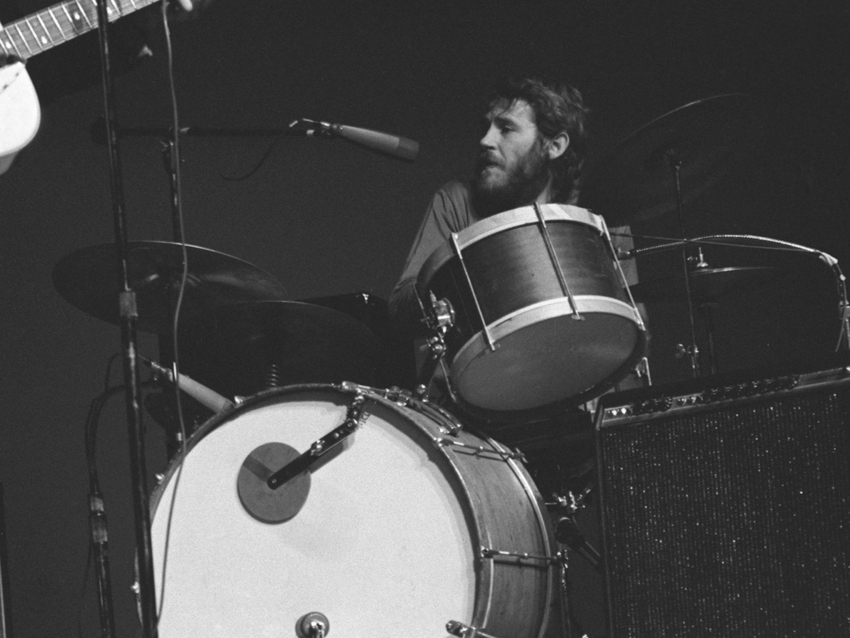
Levon Helm
Imagine backing up Bob Dylan in 1965 when the world-famous folk troubadour made history by going electric. That's pretty good for most people.
Now imagine helping to redefine rock 'n' roll with an album called Music From Big Pink, a disc bursting with so much heartfelt playing that it caused Eric Clapton to break up Derek And The Dominoes and want to join the group that recorded it. Not too shabby.
Behind all of this was a Levon Helm. With The Band (formerly The Hawks), his drumming - a rootsy, rustic shuffle that combined southern country, blues and rockabilly - fit like outfit's intuitive musicianship like a well-worn glove.
But it was Helm's singing - his deeply soulful, almost pained delivery is practically impossible to mimic - that made songs such as The Weight, Up On Cripple Creek and The Night They Drove Old Dixie Down lasting works of art.
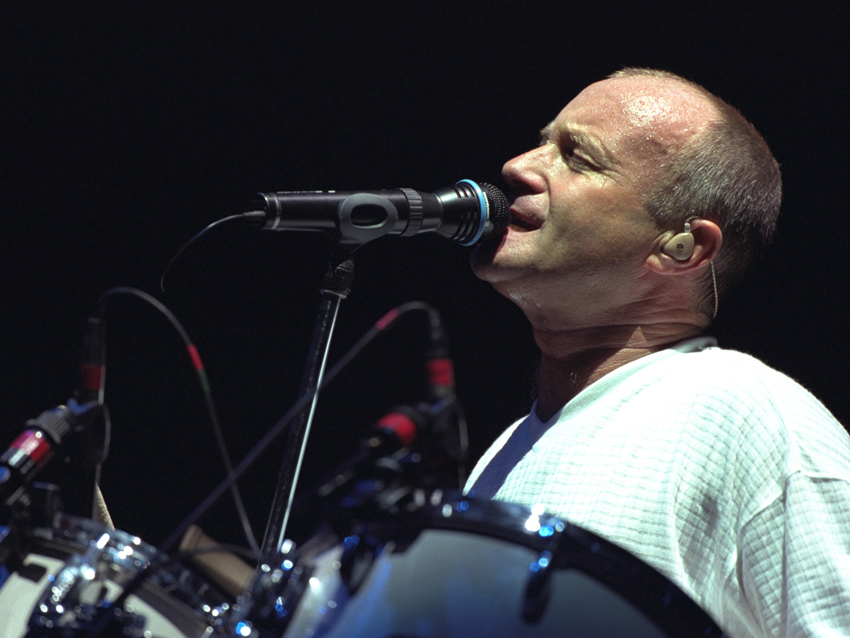
Phil Collins
We can forgive him for the whole Miami vice thing. We can forgive him for a couple of gloopy ballads, as well. We can even forgive him for being so freakin' ubiquitous during the '80s.
Fact of the matter is, Phil Collins was firing on all cylinders during those years, enjoying a multi-dimensional career that saw him ruling the charts with Genesis and as a solo artist while producing, drumming for and singing with everybody under the sun.
The Phil Collins drum sound during the early '80s virtually defined the era. The cymbals-free wallop throughout Peter Gabrial's third solo album and the gated reverb explosion heard on In The Air Tonight were highly influential and widely copied. (And thanks to movies like The Hangover, the power of Phil's fills continues to find new audiences.)
Blessed with the kind of vocal chops that allowed him to handle prog-rock masterpieces like Supper's Ready, Collins' expressive, husky voice wrapped around an avalanche of pop hits like nobody's business. Throughout the years, his musical reach has been virtually limitless, encompassing art rock, pop, blues and even film soundtracks.
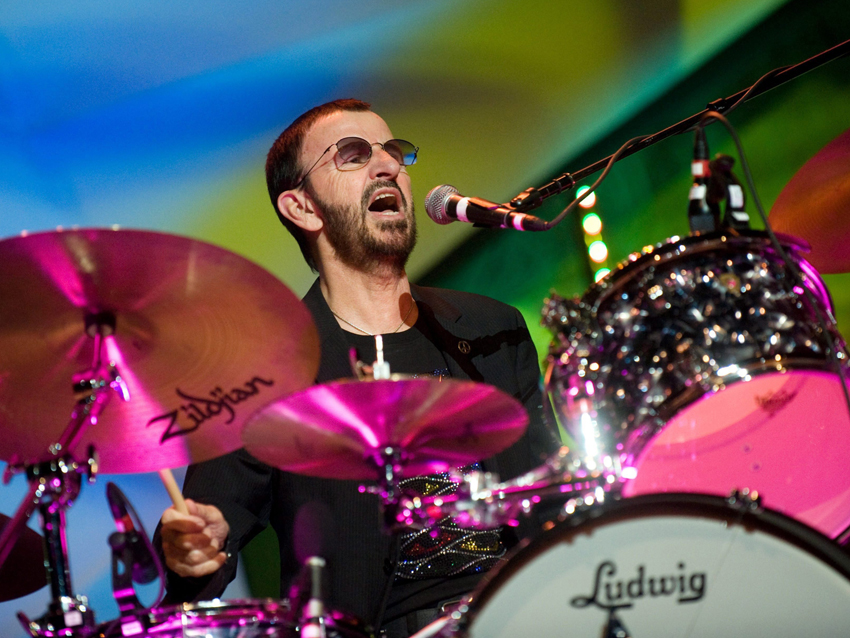
Ringo Starr
Sure, he was in a pretty good group, but it can be strongly argued that without Ringo Starr's ever-inventive drumming, lovable personality, droll humor, and yes, his unique way of singing - no, owning - a song, The Beatles wouldn't have reshaped the world as we know it.
He was, quite simply, the missing piece of the puzzle, that essential and almost undefinable element that creates a compound.
Beatles history is a full-time occupation for millions of people across the globe, so no need to even go into a Cliffnotes version here. As the saying goes, we'll cut to the chase: Ringo Starr's profoundly creative drumming, that one-of-a-kind, only-Ringo-can-play-it swing, is impossible to separate from the music of The Beatles.
When it came to singing, all Starr had to do was be himself. His range barely spanned an octave, but what he could do with those few notes was astonishing. When called for, he could rock your socks off (and damn near destroy his kit in the process), but most of the time he crooned - beautifully. Hearing Starr's voice was like getting a phone call from an old friend. It was familiar, comforting - you felt as if you were home when you heard him.
Whether singing the compositions of John Lennon and Paul McCartney or even one of his own, Starr did something very few drummers - and very few singers, for that matter - have ever done: He put himself in the song. He owned it. If Ringo sang you a tune, that tune became his.
And he's still doing it. In 2011, Starr hit the road with the latest lineup of his All-Starr Band. May we see many more tours, and much more of Ringo Starr, in the years ahead.
Joe is a freelance journalist who has, over the past few decades, interviewed hundreds of guitarists for Guitar World, Guitar Player, MusicRadar and Classic Rock. He is also a former editor of Guitar World, contributing writer for Guitar Aficionado and VP of A&R for Island Records. He’s an enthusiastic guitarist, but he’s nowhere near the likes of the people he interviews. Surprisingly, his skills are more suited to the drums. If you need a drummer for your Beatles tribute band, look him up.
